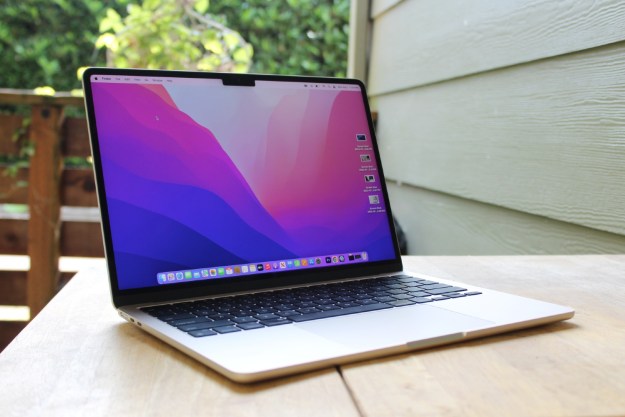Mac users are reporting alarming behavior on their M1-powered Macs — including Apple’s latest Mac Mini, MacBook Air, and 13-inch MacBook Pro models — that could lead to severely shortened lifespans of their internal storage drives. If the glitch continues, users expect that the solid-state drive (SSD) on the Mac will last just two years. The problem is especially notable on a Mac where the storage itself is not user-replaceable, which would either lead to a costly repair or a complete replacement of the entire computer if the drive prematurely fails.
Users of Apple’s newest M1-powered Macs are reporting that there is extremely high drive writes over a short period of time, and the most extreme cases resulted in approximately 10-13% of the maximum total bytes written, or TBW, of the SSD, according to an iMore report. In about two months, one user noted that the M1 Mac had already used 1% of the SSD, while Twitter user Hector Martin noted that on his 2TB system, the Mac had used 3% of the SSD.

This had led to speculation that if it was a 256GB model rather than a 2TB Mac, the percentage used could be as high as 30%. This means that the system would have reached its maximum TBW in two years.
Update on M1 SSD wear issue: Available data suggests that write endurance ratings are not proportional to drive size.
256GB model: ~2000TB [1700-2300]
2TB model: ~5000TB [4300-6000]This means that @david_rysk's currently known worst case would push a 256GB model to 100% in ~2y
— Hector Martin (@marcan42) February 16, 2021
It’s also unclear if the problem is isolated to M1-powered Macs or if older Intel-based Mac systems are susceptible to this erratic storage behavior. Twitter user Dark-Phoenix confirmed that they are also running out of space due to abnormal usage on an older 2016 MacBook Pro, which is powered by Intel.
“On my MBP (15-inch, 2016) I use for work,” Dark Phoenix wrote. “I have it all backed up, but still my usage is abnormal since I do a lot of data processing and rarely have free space.”
This seemingly suggests that the problem may be software-related, rather than an issue with how Apple’s custom M1 silicon functions.
“Intel Macs qualify too, if you can scale that by the time you’ve owned it and it looks crazy,” Martin added in a subsequent tweet. “Obviously 100TB over 4 years is reasonable.”
However, it’s still unclear if this glitch exists because the system had made erroneous recordings, or if it’s a major problem related to MacOS writing unnecessary data to the drives. Oftentimes, drive monitoring tools can often misreport diagnostic information, and given the newness of the M1 chipset, there could be some compatibility issues with the tool or with other apps not behaving properly in the background.

While SSD degradation is a normal process that happens over time with regular usage, extensively writing data to memory and filling it to capacity could make the storage unstable and lead to drive failure. Modern operating systems, like Apple’s MacOS when working properly, will attempt to preserve the integrity of the drive by spreading the load across the entire drive to prevent only a select portion of the drive from being overworked.
Whatever the case may be, hopefully, Apple can address the issues before more Mac systems get refreshed with the M1 chipset. Apple’s Mac Pro and iMac desktops are rumored to get overhauled this year, joining the much anticipated redesigned 14- and 16-inch MacBook Pros.
Editors' Recommendations
- MacBook Pro 16 vs. MacBook Pro 14: The important differences
- The case for buying the M2 MacBook Air over the M3 model
- Here’s more confirmation that 2024 will be a slow year for Macs
- Why you should buy a MacBook Air instead of a MacBook Pro
- The MacBook Air 15 vs. MacBook Pro 14: the easy way to decide


